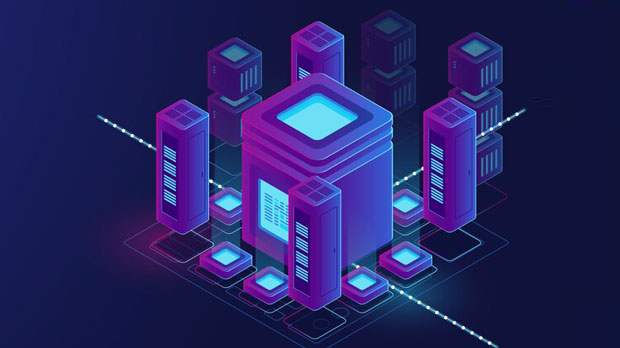The use of proxy services in ad verification is a vital tool for businesses to track, analyze, and ensure the accuracy and legitimacy of their digital advertisements. However, PYPROXY Free Proxy List, a popular choice in the field of proxy services, imposes certain restrictions that users must be aware of when integrating it into their ad verification processes. These restrictions primarily revolve around speed, reliability, and geographic location limitations, which can impact the effectiveness of ad verification campaigns. This article will explore the various usage constraints of the PyProxy Free Proxy List in ad verification, how they may affect advertisers, and how users can optimize their proxy usage for more efficient ad verification. Understanding PyProxy Free Proxy List Restrictions in Ad VerificationAd verification ensures that digital ads are displayed as intended, to the right audience, and in the right context. With the increasing complexity of online advertising, proxy services like PyProxy Free Proxy List are often used to test ads from different regions, devices, and browsers, without revealing the user’s actual location or identity. However, the use of free proxy services, including PyProxy Free Proxy List, comes with certain restrictions that can impact ad verification in several ways. To understand these restrictions more clearly, we can break them down into four key areas: performance limitations, geographical restrictions, reliability concerns, and privacy risks. Performance Limitations: Speed and Bandwidth ConstraintsOne of the most significant limitations of using the PyProxy Free Proxy List in ad verification is its speed and bandwidth restrictions. Free proxies are often overloaded with users, which results in slower speeds and potentially unstable connections. In ad verification, speed and real-time access are essential for accurate data collection, especially when monitoring live campaigns. Slow proxies can delay the verification process, making it difficult for businesses to respond to issues in a timely manner.In addition, free proxies typically have bandwidth limitations. Advertisers may find that they are unable to verify large volumes of ads at once or are throttled after a certain amount of usage, leading to inefficiencies in their verification efforts. This becomes particularly problematic when conducting a large-scale ad verification campaign, where time and accuracy are critical. Geographical Restrictions: Limited Access to Diverse RegionsAnother restriction often encountered when using PyProxy Free Proxy List is the limited access to diverse geographic regions. Ad verification often requires testing ads from various countries and regions to ensure that they are appropriately targeted. However, free proxies are often limited in their geographic coverage, which could restrict the advertiser's ability to validate ads across multiple markets.For instance, some proxies may only provide access to IP addresses in a small number of countries, which means that advertisers may not be able to verify their ads in specific locations, leaving potential gaps in their verification strategy. To properly test global ad campaigns, users may need to explore premium proxy services, which offer a wider variety of IP addresses across different geographic locations. Reliability Concerns: Instability and Frequent DowntimeReliability is another critical factor that affects the use of PyProxy Free Proxy List in ad verification. Free proxies are often prone to instability, which can lead to frequent downtime. In ad verification, this is a serious issue, as it can prevent the verification process from being completed or cause interruptions during testing.The reliability of free proxies can vary depending on the number of users accessing the same server at any given time. As the PyProxy Free Proxy List is publicly available, many users may be simultaneously accessing the same proxies, which can lead to congestion and slower or inconsistent connections. This unreliability makes it difficult for businesses to maintain consistent ad verification results, leading to potential misinterpretations of data and delays in addressing ad-related issues. Privacy Risks: Data Security and Anonymity ConcernsWhen it comes to using proxies, data privacy is a crucial consideration. The PyProxy Free Proxy List, like many free proxy services, may not offer the same level of data protection as paid alternatives. Advertisers using free proxies are often unaware of the potential risks associated with data breaches and privacy leaks.Free proxies may lack robust encryption and security protocols, leaving the user's data vulnerable to hackers or other malicious actors. In the context of ad verification, this can result in sensitive information being exposed, such as advertising strategies, campaign data, and target audience insights. To ensure privacy and data protection, businesses should carefully evaluate the risks involved in using free proxies and consider upgrading to paid proxy services that offer enhanced security features. Mitigating the Impact of Restrictions on Ad VerificationDespite the limitations mentioned above, there are ways to optimize the use of PyProxy Free Proxy List for ad verification. Below are some strategies that can help mitigate the impact of these restrictions:1. Optimizing Proxy Rotation: To improve speed and avoid connection issues, advertisers can use proxy rotation. By rotating proxies regularly, businesses can distribute the load across multiple IP addresses, reducing the likelihood of slow speeds and downtime.2. Combining Free and Paid Proxies: Another effective strategy is to combine free proxies with premium ones. While free proxies may suffice for basic tasks, using paid proxies for critical ad verification tasks can help ensure better performance, reliability, and geographic diversity.3. Targeting Specific Regions: Advertisers should focus on targeting specific regions that are adequately covered by the PyProxy Free Proxy List. By narrowing the scope of their ad verification efforts to regions where free proxies are most reliable, businesses can achieve more accurate results without needing to invest in premium proxy services.4. Testing Ad Verification at Off-Peak Times: To avoid slow speeds and downtime, it is advisable to conduct ad verification tests during off-peak hours when fewer users are accessing the proxies. This can help improve performance and minimize delays.5. Implementing Additional Security Measures: To address privacy risks, businesses can implement additional security measures, such as using VPNs or encrypted connections, alongside proxies. These measures can help ensure that the data being transmitted during ad verification remains secure.In conclusion, while the PyProxy Free Proxy List offers a cost-effective solution for ad verification, its usage comes with certain restrictions that can affect the overall effectiveness of the verification process. Speed, reliability, geographic coverage, and privacy concerns are key limitations that businesses must consider when using free proxy services. However, by employing strategies such as proxy rotation, combining free and paid proxies, and focusing on specific regions, advertisers can optimize their ad verification efforts and ensure that their campaigns are tested and validated accurately. Ultimately, understanding these restrictions and adapting to them can help businesses maintain the integrity of their ad campaigns and avoid costly errors.
Nov 10, 2025



































































